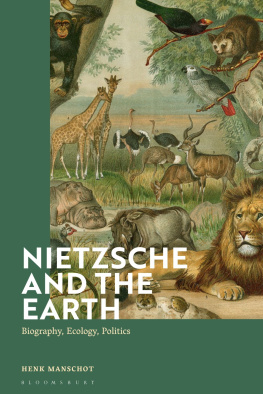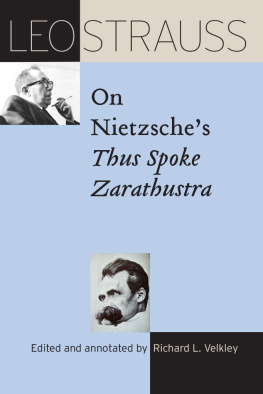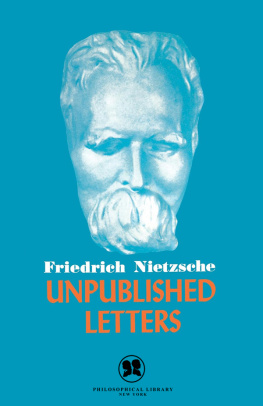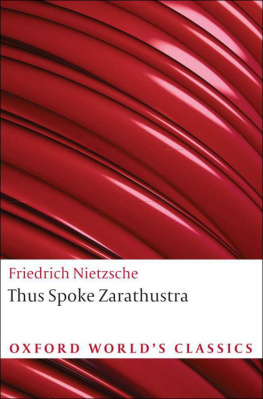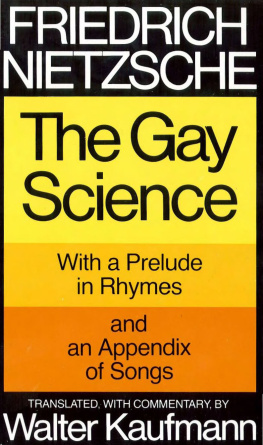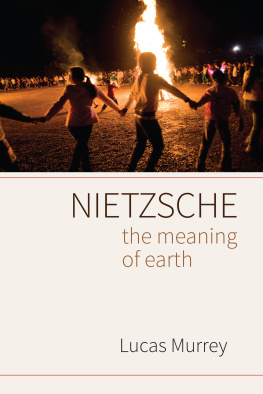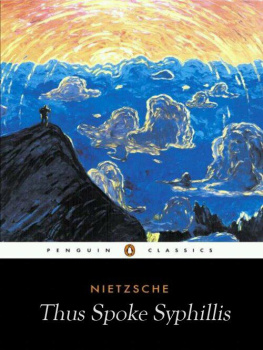Nietzsche and The Earth
Also Available from Bloomsbury
Nietzsche and Epicurus , ed. Vinod Acharya and Ryan J. Johnson
Nietzsche and Friendship , Willow Verkerk
Understanding Nietzsche, Understanding Modernism , ed. Brian Pines and Douglas Burnham
Nietzsche and The Antichrist , Daniel Conway
Nietzsche and The Earth
Biography, Ecology, Politics
Henk Manschot
Translated by
Liz Waters

Contents
During my first sabbatical, in the early 1980s, I roamed the mountains of Nepal for six weeks. I had two books in my rucksack, Siddhartha by Herman Hesse and Thus Spoke Zarathustra by Friedrich Nietzsche. It was a real sabbatical, far away from the goings on of the university world that could be fairly hectic even in those years. At the end of the trip one thing was clear to me: I wanted to do something like it again one day. But I had to wait until after retirement to be able to follow in Nietzsches footsteps, in the Alps and along the Mediterranean coast. Neither of those walks would have been possible without the hospitality of many friends. My French in-laws apartment in the Swiss Alps became a precious place, where I could combine walking and writing. In 2013 I spent several weeks hiking in the Alps on the Italian side, and there I had a beautiful Walser hut to stay in, built according to old German methods. A few of these buildings can still be found in the region around the Monte Rosa. The spring of 2013 turned out to be colder than expected, and on those frosty days Raymond and Blanca, and their extraordinary children Beaudelot, Quinteyn and Madalie, were a heart-warming source of pleasure, inspiration and friendship. Their dedication to the vita pura their term for a style of life close to nature that they are developing there, along with the unforgettable Mr Luca, his vegetable plot and his goats gave me the feeling that my intuitions had put me on the right track. Because I prefer warmth to cold and because Nietzsche chose to live on the mild coasts of the Mediterranean in winter, I wanted to make that part of his experience my own too. An offer from another branch of my wifes family enabled me to do so. I spent a solitary and peaceful MarchApril season on the rugged coast of Spain. The light and warmth of the place and the endless view out over the sea will always be connected in my mind with the sunniest passages of the book. My heartfelt thanks go to the Vincenots, Landgraafs and Jannots.
Writing this book involved alternating between periods of being alone, of concentration and seclusion, and periods of conversation and discussion with friends, colleagues and students. Their interest, suggestions and comments helped me on my way again and again. Joep Dohmen gave me the idea of starting this project. He recommended books about Nietzsche and followed developments from start to finish with his sometimes critical, sometimes surprised but always encouraging view. Only very gradually did I gain a grip on the material. The ability to test the progress of my ideas annually at the International Summer School organized by the Kosmopolis Institute of the University of Humanistic Studies helped immensely. I would like to thank the students for their enthusiasm and the staff for their sincere commitment. My dear friend and colleague Caroline Suransky, coordinator and source of inspiration for the Summer School, experienced the entire process from close proximity. We had many conversations on the subject of the book. She annotated several versions of the text and at times of doubt she always encouraged me not to give up. Another exceptional colleague at the Summer School, Sitharamam Kakarala from India, became an enthusiastic sparring partner. Ram is an unerring expert on computers, a fervent practitioner of Ayurvedic medicine and a great lover of Indian music, which he shared with us. But it was above all his sharp observations and suggestions that left their mark at several places in the book. With Zainal Bagir from Indonesia I share an interest in developments in the field of religion and ecology, especially within Islam. J.C. van de Merwe, director of the Institute for Reconciliation and Social Justice at the University of Bloemfontein in South Africa, offered to develop the themes of the book further at his institute. I also received a great deal of support from friends and colleagues at the University of Humanistic Studies. I am grateful to Hans Alma, chair of the research group Globalisation and Dialogue Studies, for allowing me to remain attached to the university via her chair. I had stimulating conversations about the importance of a terrasophical perspective for the study of humanism with my old student, faithful friend and colleague Laurens ten Kate, with Fernando Suarez Muller and with Renske van Lierop.

